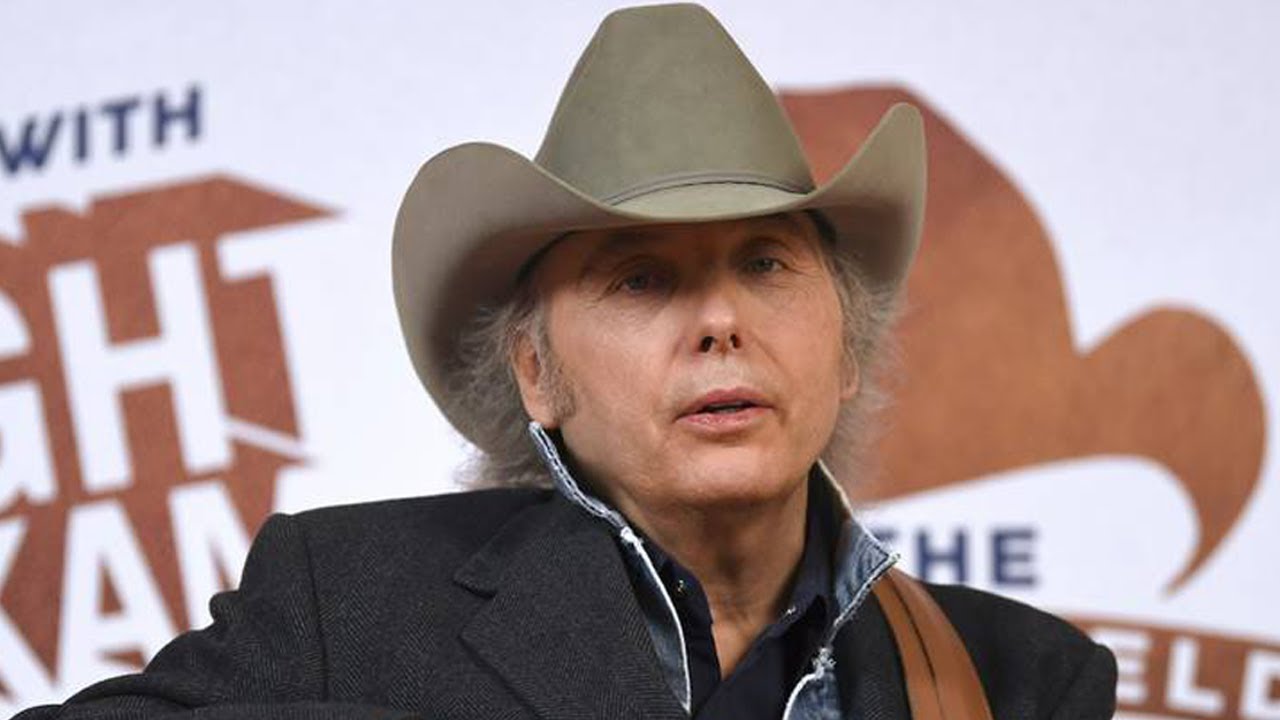
The Enduring Ache of Unrequited Affection: When “Little Sister” Means So Much More
There are songs that simply play, and then there are those that resonate deep within the chambers of memory, stirring long-dormant feelings and painting vivid pictures of a bygone era. Dwight Yoakam’s electrifying take on “Little Sister” is undeniably one of the latter. Released in 1987 as a single from his sophomore album, “Hillbilly Deluxe”, this poignant track wasn’t just a nod to rockabilly roots; it was a country-rock masterpiece that climbed to a respectable #7 on the Billboard Hot Country Singles chart. At its heart, “Little Sister” is a timeless lament of unrequited love, capturing the bittersweet pain of being confined to the “friend zone” when your heart yearns for something profoundly more intimate and romantic. It speaks to that universal human experience of loving someone deeply, only to be seen as nothing more than a platonic confidant, a “brother” to their “sister.”
To truly appreciate Dwight Yoakam‘s rendition, one must first acknowledge its storied lineage. This isn’t merely a country song; it’s a brilliant reinterpretation of a rock and roll classic, originally brought to life by none other than the King himself, Elvis Presley. Penned by the legendary songwriting duo Doc Pomus and Mort Shuman, the original “Little Sister” pulsed with a raw, rockabilly energy in 1961, telling a familiar tale of a man desperately wishing his beloved would see him as a lover, not just a friend. For Dwight Yoakam, a devout student of American roots music and a champion of the Bakersfield sound – a grittier, guitar-driven alternative to Nashville’s polished countrypolitan – covering this song was a natural, almost fated, choice. His own musical DNA was steeped in the very rock and roll that birthed Elvis’s classic, blending the honky-tonk twang of country with the rebellious swagger of rockabilly. He understood the song’s inherent longing and infused it with his distinctive vocal tremor and a country heartache that only he could deliver.
The meaning of “Little Sister” transcends its genre origins, striking a chord with anyone who has ever felt that tender ache of longing. It’s a narrative woven from the threads of frustration and yearning, depicting a man observing the object of his affection, aware of her every move, her every relationship, yet powerless to shift his status in her eyes. “Little sister, don’t you do what your big sister done,” he pleads, a warning layered with desperation, hoping she won’t make the same mistakes in love, while simultaneously hoping she might, just this once, turn her gaze upon him. The song’s brilliance lies in its simplicity and its profound emotional resonance. It’s a narrative that echoes across generations, reminding us of first crushes, unspoken affections, and the quiet despair of proximity without intimacy. For older readers, it might conjure images of school dances, whispered confessions never made, or the wistful memory of a friendship that always felt like it could have been more.
Dwight Yoakam didn’t just cover “Little Sister”; he reimagined it through the lens of his unique artistry. While Elvis’s version crackled with youthful urgency, Yoakam’s interpretation is imbued with a mature, almost weary, resignation that only enhances the song’s emotional weight. His voice, a distinctive blend of twang and soul, gives the lyrics a raw vulnerability. The instrumentation, a hallmark of his Bakersfield sound, features a driving rhythm section, crisp, jangling guitars, and a subtle but effective fiddle, creating a soundscape that is both familiar and fresh. It allowed country music audiences to embrace a classic rock and roll tune without feeling alienated, bridging a gap between genres with effortless cool. This version of “Little Sister” became a quintessential example of Yoakam’s genius: taking a beloved song, respecting its essence, and then imprinting it with his unmistakable, timeless stamp.
For those of us who came of age with Dwight Yoakam‘s music, or discovered it later as a cherished soundtrack to our lives, “Little Sister” remains a powerful touchstone. It’s a reminder that some feelings are universal, transcending the years and the changing musical landscape. The song invites us to reflect on our own “little sisters” or “big brothers”—those individuals who occupied a special, yet frustratingly platonic, space in our hearts. It’s a testament to the enduring power of a well-crafted song to evoke deep personal memories and shared human experiences. So, let the opening chords transport you back, let the familiar melody wash over you, and allow Dwight Yoakam’s soulful rendition of “Little Sister” to stir those long-held reflections on love, longing, and the bittersweet beauty of what might have been.